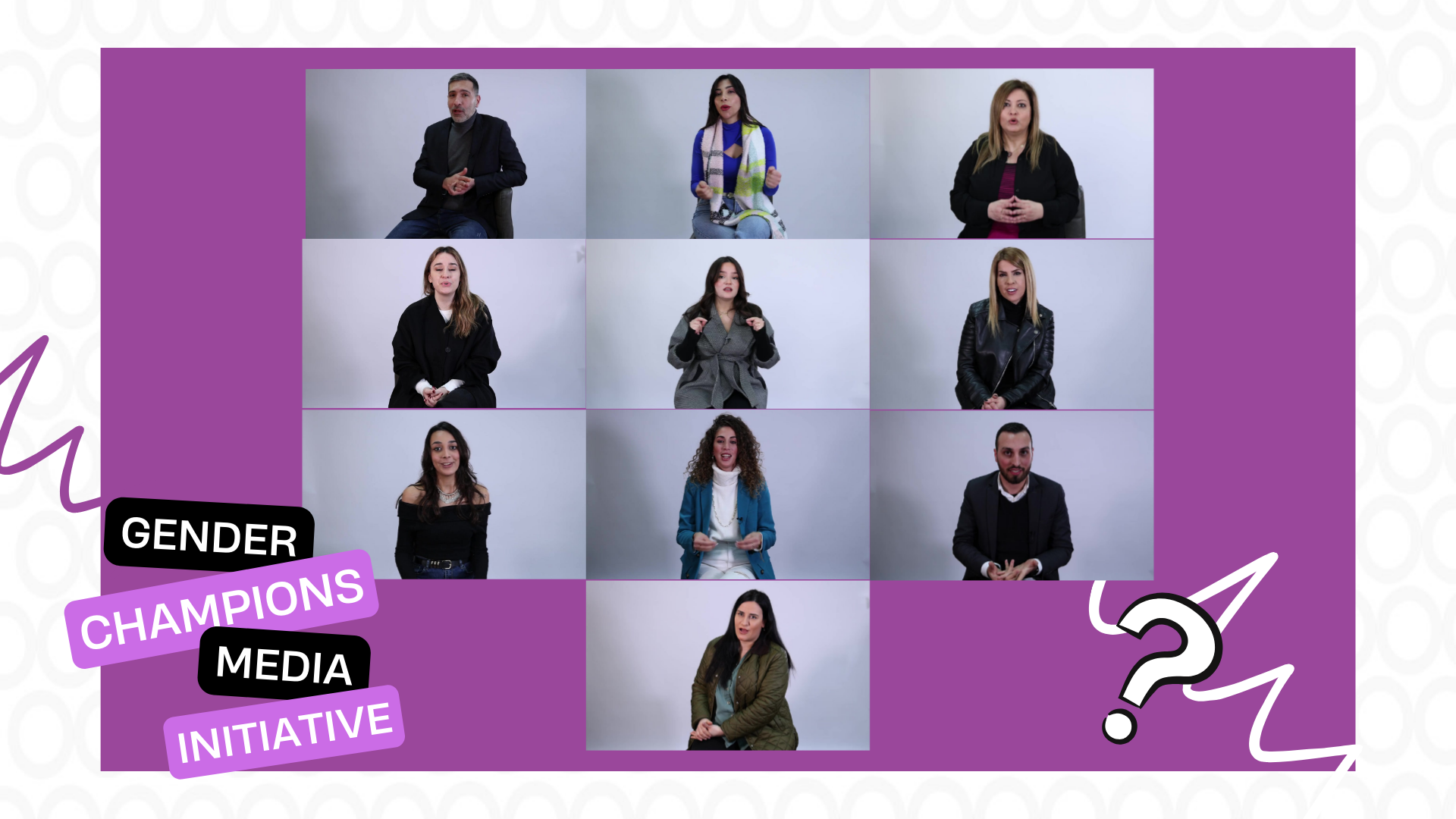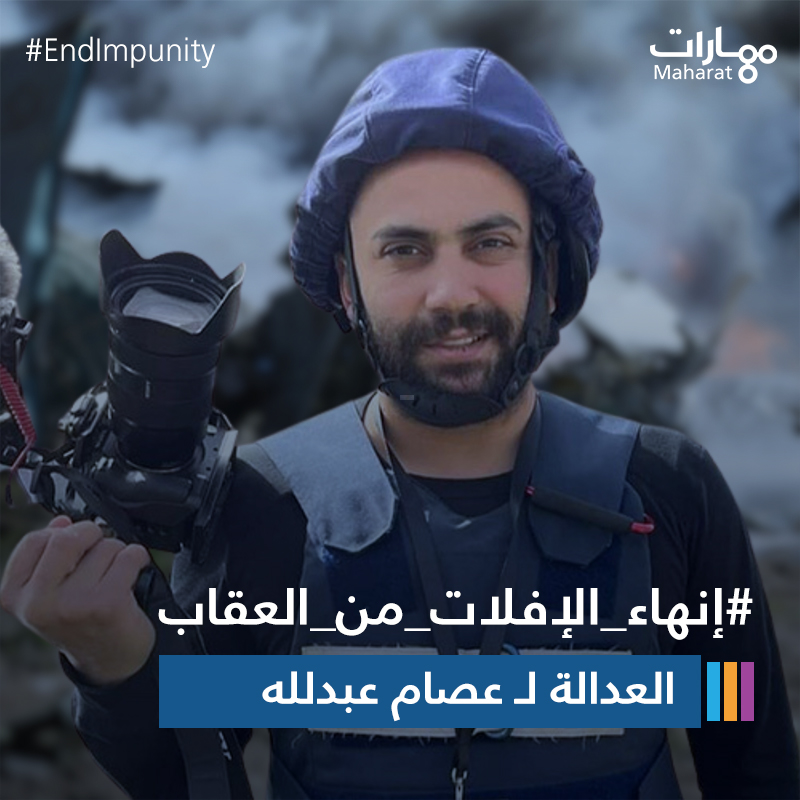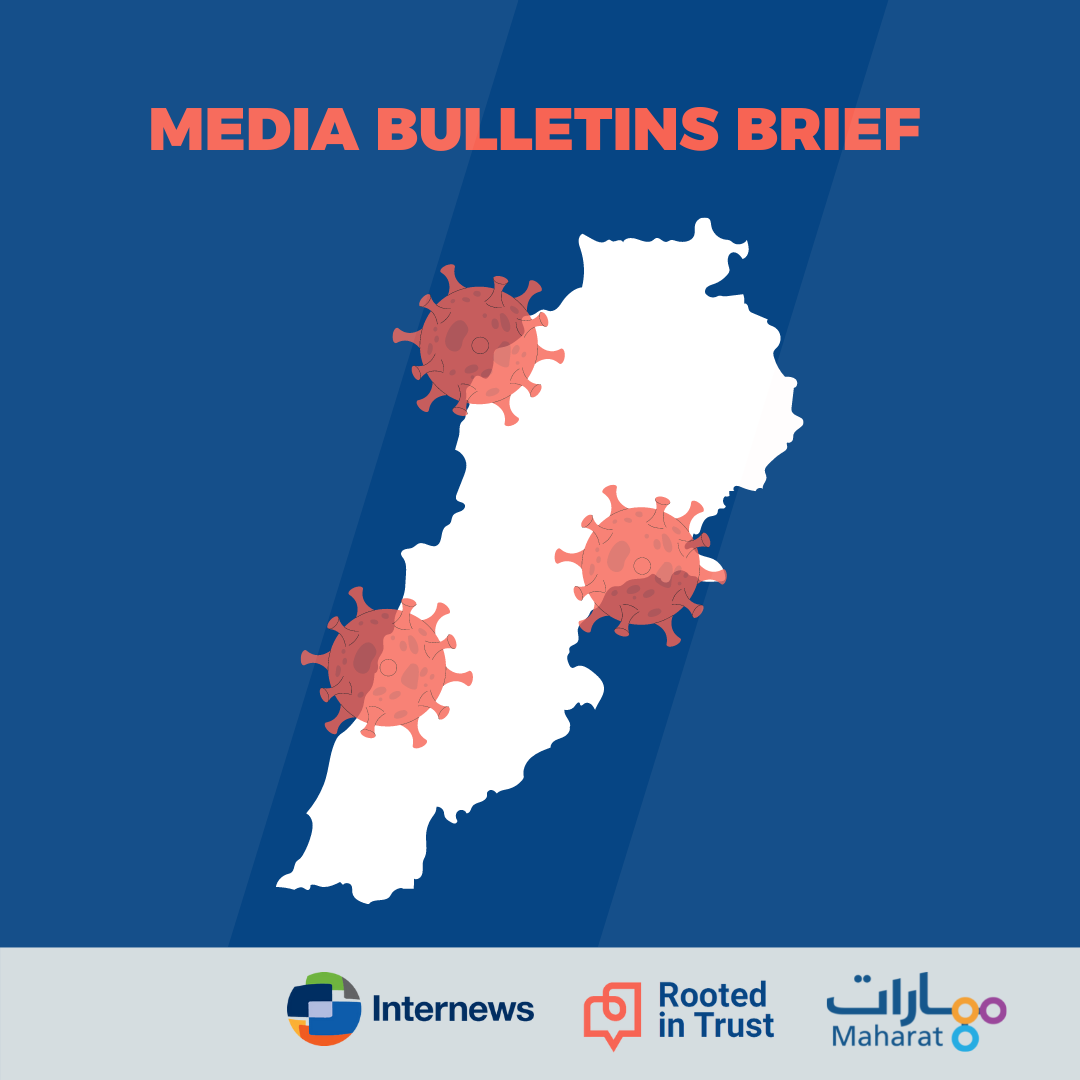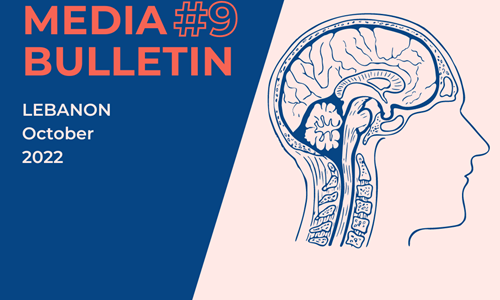
Media and Gender Equality #هلق_دوري (My Turn)
The "Media and Gender Equality" project, undertaken by Maharat Foundation, involved working for six months with journalists applying for the “Gender Champions” Fellowship on Gender Equality. The aim was to equip them with knowledge and skills in the field of gender equality, which they could then transfer to their peers to enhance gender-sensitive media coverage
The project aimed to open areas for collaboration with media institutions, which play a crucial role in driving change. Numerous international agreements and treaties have highlighted the importance of media and its role as a fundamental tool for development, promoting women's rights, and gender equality.
This project is a continuation of Maharat's efforts to strengthen its relationship with the media, which amplifies the voices of citizens and advocates for their issues, especially those of women and marginalized groups. It aims to make the media and information ecosystem more balanced and secure, giving voice to women, breaking stereotypes, advocating for equality while highlighting women as leaders and change-makers.
Documentary on the Project
A video was produced to document the project’s activities, featuring the journey of 10 journalists from various traditional and alternative media outlets who were selected to participate in a training program on the principles of gender-sensitive media reporting. The training focused on two main aspects: theoretical and technical.
The theoretical component delved into forms of discrimination against women, the stereotypical roles attributed to them, gender issues, and laws addressing discrimination. The technical aspect covered journalistic coverage methods to ensure gender sensitivity, from selecting topics to the terminologies used. Case studies were presented as practical examples.
The training also included a three-day Training of Trainers (ToT) session to enhance the capacity of trainers in delivering information. The trained journalists then transferred their acquired skills to other journalists, covering a network of 80 journalists who benefited from the project.
In parallel, the journalists worked on preparing 10 visual stories featuring activists in their local communities who succeeded in changing stereotypes about women.
Video Profiling Women Activists
This project succeeded in establishing a network of journalists from various regions in Lebanon and media outlets. All came together during a networking meeting organized by Maharat on February 24, 2024, in Beirut, whereby they worked together in groups to formulate recommendations pushing towards more gender-sensitive reporting.
Video on the Networking Event among Journalists
The Concluding event
Maharat always aims to build partnerships with media institutions. As part of this project, an event entitled "Media and Promoting Gender Equality" was organized as a concluding activity. It brought together representatives from political parties, activists, experts in various fields, journalists, representatives from media institutions, and civil society organizations working on promoting women's rights and participation in the public sphere and gender equality. The event included panel sessions moderated by the journalist Walid Abboud on the role of the media in promoting gender equality and the portrayal of women in the media. The report "Gender and Media: Commitments of media institutions to gender equality" was launched during this event, whereby 13 media institutions expressed their commitment to gender equality.
Concluding event Video
Gender and Media: Commitments of media institutions to gender equality
This report, in its first part, presents the international commitments to gender mainstreaming in media, in addition to the status of gender equality at the national level in terms of organizational, legal, political, economic, social, and cultural aspects. Moreover, it illustrates how the media deals with women in the political field, with most news biased towards male perspectives. It also highlights the reality of gender diversity within media institutions in the workplace and in leadership positions. Additionally, it showcases the extent to which media rely on women as news sources, experts, and advocates, as well as the ratio of coverage dedicated to gender equality issues.
The second part of the report entails a commitment document pertaining to gender equality, which can be endorsed by media institutions, with the aim of promoting a more gender-sensitive media landscape.
Video about the report
We invite you to follow the #هلق_دوري (My Turn) campaign on Maharat's social media accounts, which includes the stories of the ten journalists who participated in the training, in addition to the reports and series of activities produced within this project.





